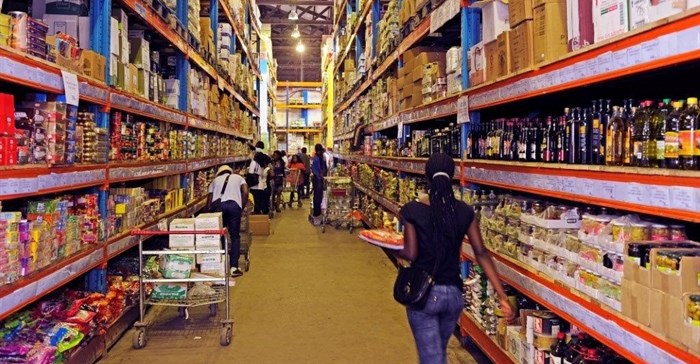Annual financial results for Imperial Logistics reflects the increasing pressure on the industry and volatility in the African region. However, according to Cobus Rossouw, chief business development, and strategy officer, the tough trading conditions that contributed to Imperial's reported flat revenue and operating profit decline have galvanised the group's resolve to continue investing in people, relationships and capabilities that will help deliver the required returns for shareholders.

Cobus Rossouw
“With a more asset-light strategy, the business will add further impetus to its drive to develop customised solutions to better service clients and improve their efficiencies,” he states. “In line with our strategic objectives, the consolidation of the Logistics Africa and Logistics International divisions into one logistics division will enable the creation of an increasingly global, asset-light, cash generative logistics group able to identify and prioritise strategic opportunities, allocate capital appropriately, exploit synergies and disseminate management expertise.”
Tough trading conditions
In South Africa, challenging trading conditions continued to put pressure on the Imperial’s revenue and profitability due to soft volumes in most sectors, particularly in manufacturing and commodities, which were partially offset by new contract gains and pleasing performances from some group companies. “Expansion into new markets and partnerships with new principals during FY2016 continued to deliver favourable results for Imperial,” Rossouw explains.
The group’s operations in the rest of Africa continued to perform strongly, with revenue and operating profit growing by 18% and 23% respectively, despite challenging trading conditions that worsened in the second half of the year. “This performance was supported by volume growth and the contribution of our businesses in the pharmaceutical sector.”
New perspective on commercial engagement
Looking ahead, Rossouw believes that Imperial differentiators like performance-based partnerships with clients, absolute transparency and leading transformation programmes are the cornerstones of a strategy that that will enable the group to not only weather the economic storm but to thrive. “A strategic area that we are focusing on with more vigor than ever is our drive to engage differently with our clients; not just on price, but on performance. We are actively pursuing different commercial models that can drive win-win partnerships that benefit both our clients and Imperial as a supplier. The South African market is very ready for this new perspective on commercial engagement because everyone is under cost pressure.”
“Mature transparency” is the term that Rossouw has coined to describe the open, performance-based partnerships that the group is increasingly seeking to forge with clients. He cites technology as one of the drivers of Imperial’s transition from old school transaction and price based contracts to new, transparent and mutually rewarding commercial models.
Logistics “control towers”, state-of-the-art IT solutions that offer unrivaled visibility of supply chains, and transport telematics are examples of the sophisticated technology that Imperial is leveraging to build transparent and mutually rewarding partnerships with clients.
Transformation a top priority
“Imperial will also continue to invest in human capital, and has been working tirelessly since the introduction of the first BEE codes to be recognised as a leader in this area. Transformation remains a top priority, and we have developed new enterprise and supplier development programmes that will ensure that we continue to lead the industry,” he states.
He sums up Imperial as a whole as a much more asset-light business than it was five years ago, and says that it will continue to get rid of underperforming assets - from vehicles to properties - in order to free up capital for new projects. “Operating in an asset light, customer-focused environment enables us to get full use of our own assets in an erratic market - for the ultimate benefit of our clients.”
“These tough times demand a renewed focus on customers’ needs, relationship development, and continuous improvement,” he concludes.

































